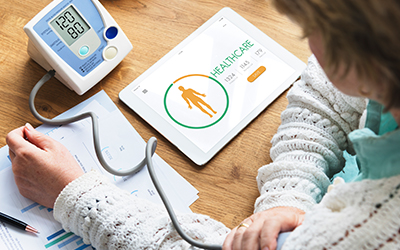Health care has an array of interdependent efforts to reform health care, at the heart of which is the active engagement of patients. the Patient Centered Medical Home (PCMH), Meaningful Use (MU), Accountable Care Organizations (ACOs), and Population Health, all these organizations are demanding a different behavior in the relationship of the provider with the patient. Improved care coordination, joint responsibilities and waste and redundancy reduction are the expected outcomes. The strategy for patient participation is based on multi-partnership collaboration and access to relevant information.
More overlapping initiatives than ever before are the responsibility of IT leaders. The strategic measures that have held most CIOs consumed last year have now taken on a different strength, taking exchanges and integrating functionality for mobile devices to engage clinicians, patients and administrative requirements. Evolving innovations and innovation shifts contribute to the integration of mobile technology into the world of healthcare. The sharing of information for care management between the providers and the patient is intended to hold patients outside the hospital as the care moves from intensive care to ambulatory conditions.
Mobile health (mHealth) can provide a safe and interoperable driver for an increasingly critical patient and provider interaction. They want and need details at their fingertips about decision-making. Mobile devices help fill existing gaps and boost the workflow of physicians, pro-active decision-making and tracking with a view to improving the quality, outcomes and safety of patients. Mhealth technology allow us to view our employees and industry in a realistic and interoperable manner quickly beyond the field of vision. In order to strengthen health relationships, MHealth utilizes Wireless and Mobile Technology platforms to accelerate interactions between providers and patients, to promote more interactive patient and provider contact and to allow patients to advocate their own health. Wearable accessibility and wireless medical devices facilitate wellness planning, encourage a healthy lifestyle and increase the availability of home and community care coordination.
This landscape of mHealth is shifting. Recently, such an exciting wave of opportunity and disturbance has not been generated by a specific technology. In a world with more cost-constrained and better health outcomes, our healthcare sector is consumed by controlled demands for management. Combinations and acquisitions take place at a quick pace as companies adapt to the new standard of reform and evaluate potential business behavior. As mobile health is having its own advantages and opportunities, the forethought of using mHealth is becoming a global reality today.
Similar to the Internet revolution, the way patients access their health care is revolutionized by mHealth. The distinguishing between traditional and mobile healthcare methods would be relaxed. Mobile healthcare is extremely competitive, as mobile healthcare starts shaping the future.


